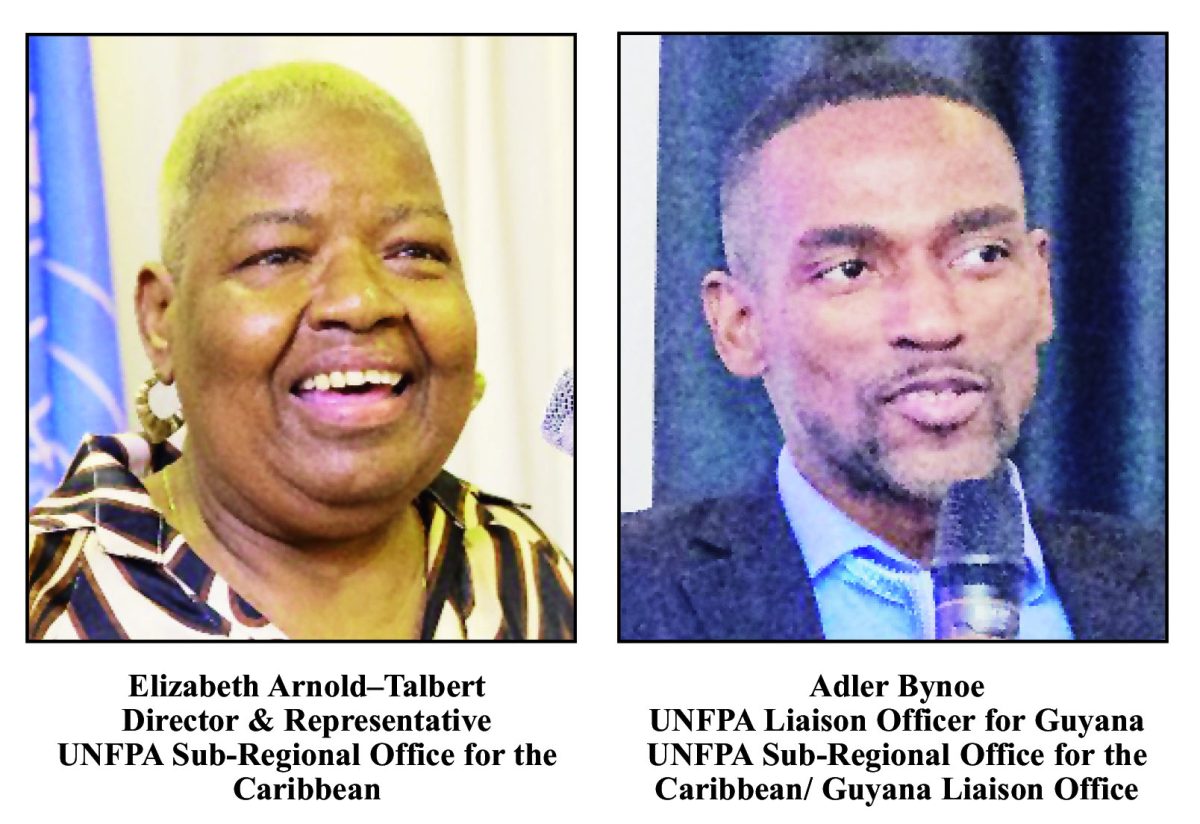Op-Ed World Population Day 2024
By Elizabeth Arnold–Talbert and Adler Bynoe
Over the past 30 years, significant advancements have been made in sexual and reproductive health and rights (SRHR). This progress was inspired by the International Conference on Population and Development (ICPD), which underscored the critical links between reproductive health, human rights, and sustainable development. The ICPD was a groundbreaking 1994 meeting in Cairo, where 179 governments adopted a revolutionary Programme of Action, emphasizing the need to prioritize women’s reproductive health and rights in both national and global development initiatives
It also highlighted the role of healthcare systems in promoting human rights and progress. The use of quality data and analysis has facilitated many advancements such as increased access to reproductive care for women, reductions in maternal mortality, and improvements in gender equality. With more comprehensive and precise information at our fingertips, we have been able to plan and monitor more effectively, allowing societies to measure and achieve goals related to health and the fulfillment of rights and choices.
However, better data has also revealed some uncomfortable truths. Despite the ICPD and the 2030 Agenda for Sustainable Development prioritizing people, their dignity, and their SRHR, the most vulnerable communities are still being left behind. The UNFPA’s State of the World Population 2024 report shows that healthcare inequality is worsening, both within and between countries. Although maternal mortality has decreased by 34%, progress in preventing avoidable maternal deaths has stalled since 2016. Maternal mortality rates in the Caribbean region are significantly higher than in developed regions, with most ranging from 21 to 156.7 deaths per 100,000 live births. Several English and Dutch-speaking Caribbean countries have maternal mortality ratio estimates above the SDG target of 70. While countries such as Antigua & Barbuda (21) have made significant strides in reducing the MMR, countries such as Jamaica (156.7), Belize (130), and Guyana (112), continue to report high MMR figures.
Adolescent birth rate (ABR), is another indicator that further shows the levels of inequality in the Caribbean. National data has revealed that only The Bahamas, Barbados, Grenada, Jamaica, and Trinidad & Tobago have met the SDG target of having an ABR below 40. Further examination of the data reveals even more inequalities, especially among certain social and ethnic groups.
The UNFPA State of the World Population (SWOP) Report 2024 shows that the most marginalized women often benefit the least from healthcare improvements. In the Caribbean, this issue is made worse by challenges such as climate change, as we have seen with the recent passage of Hurricane Beryl; demographic shifts, particularly population aging; urbanization, and inequalities. This complex situation makes reliable and inclusive population data even more crucial. We need this data to understand and meet the needs of those left behind and to build more resilient communities that can better withstand natural disasters and emergencies.
To fully capture people’s experiences, we need to collect data that includes gender, ethnicity, HIV status, sexual orientation, gender identity, disability, immigration status, and other important factors. New data tools can help us understand hidden problems and create tailored solutions. However, it is essential to use these tools carefully to avoid bias, stigma, and unnecessary risk.
World Population Day 2024 (Thursday July 11) is an opportunity to celebrate the progress made in gathering and analyzing data, but it’s also a time to ask some tough questions. Are we really focusing on the right issues? Is our data collection inclusive and respectful of everyone’s privacy and safety? Who are we still leaving out? This year marks the 30th anniversary of the ICPD, making it a perfect time for decision-makers to revisit how we can utilize data to improve our health and social systems. We need systems that empower people, respect diversity, protect human dignity, and help everyone achieve their rights and bodily autonomy.
Ensuring that our data collection is safe and inclusive, allows us to be confident that everyone counts and is counted. To maximize these benefits, the UN recommends a significant funding boost: a 50% increase in domestic funding for data and statistics by 2030, and a rise in official development assistance for data to at least 0.7%. This investment will help us build resilient systems and societies, creating a future where everyone can enjoy peace, prosperity, and the full realization of their rights and choices.
As we continue to build on the advancements since the inception of ICPD, UNFPA remains committed to achieving our three transformative results to end preventable maternal deaths, end unmet need for family planning and end gender based violence and harmful practices.
The theme of this year’s World Population Day, “Empowering People, Developing Nations,” reinforces our dedication to prioritizing women’s health and rights as essential components of global progress. Relevant, gender-inclusive data is crucial in driving this mission forward, enabling us to create informed, effective policies that truly empower individuals and foster sustainable development.






